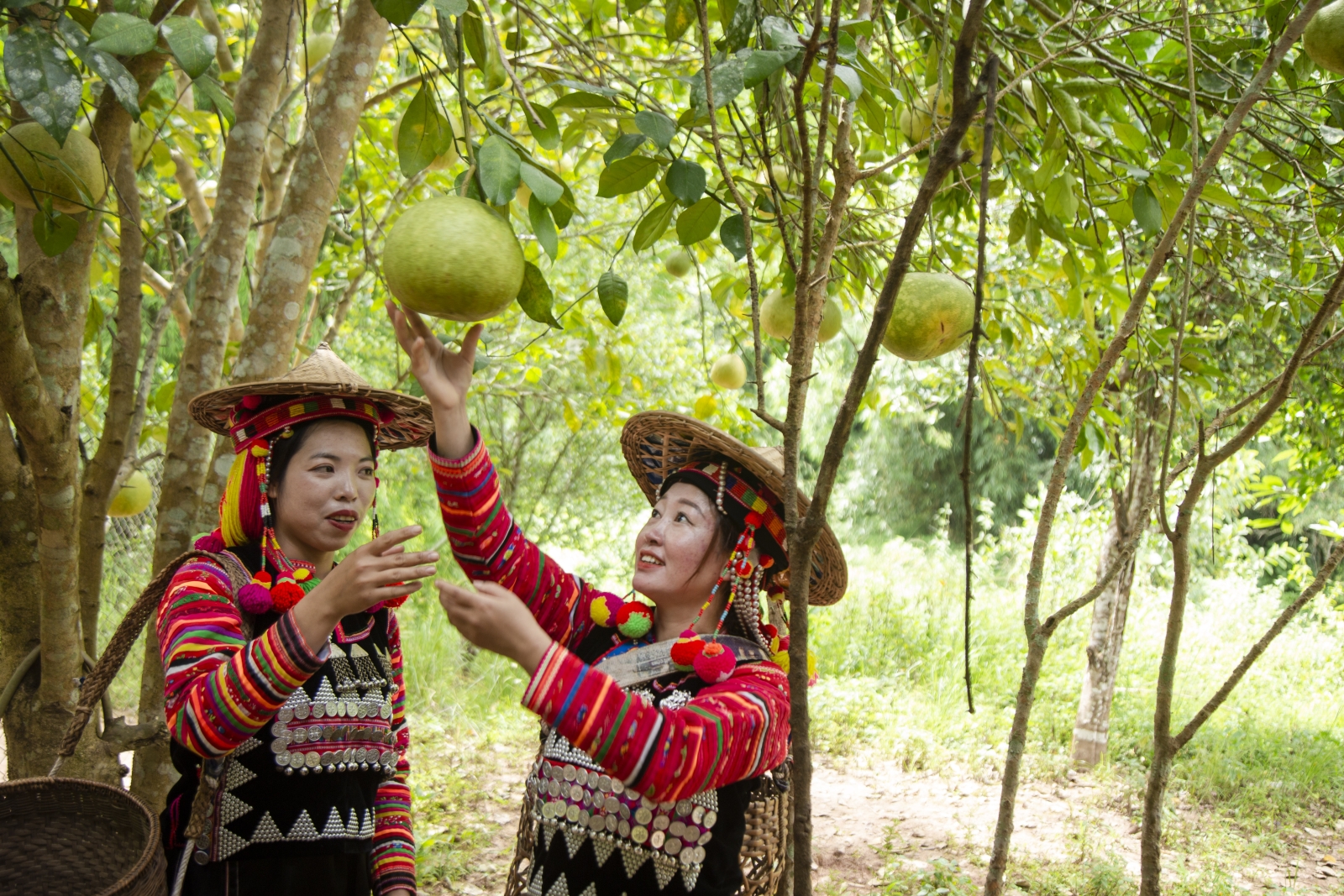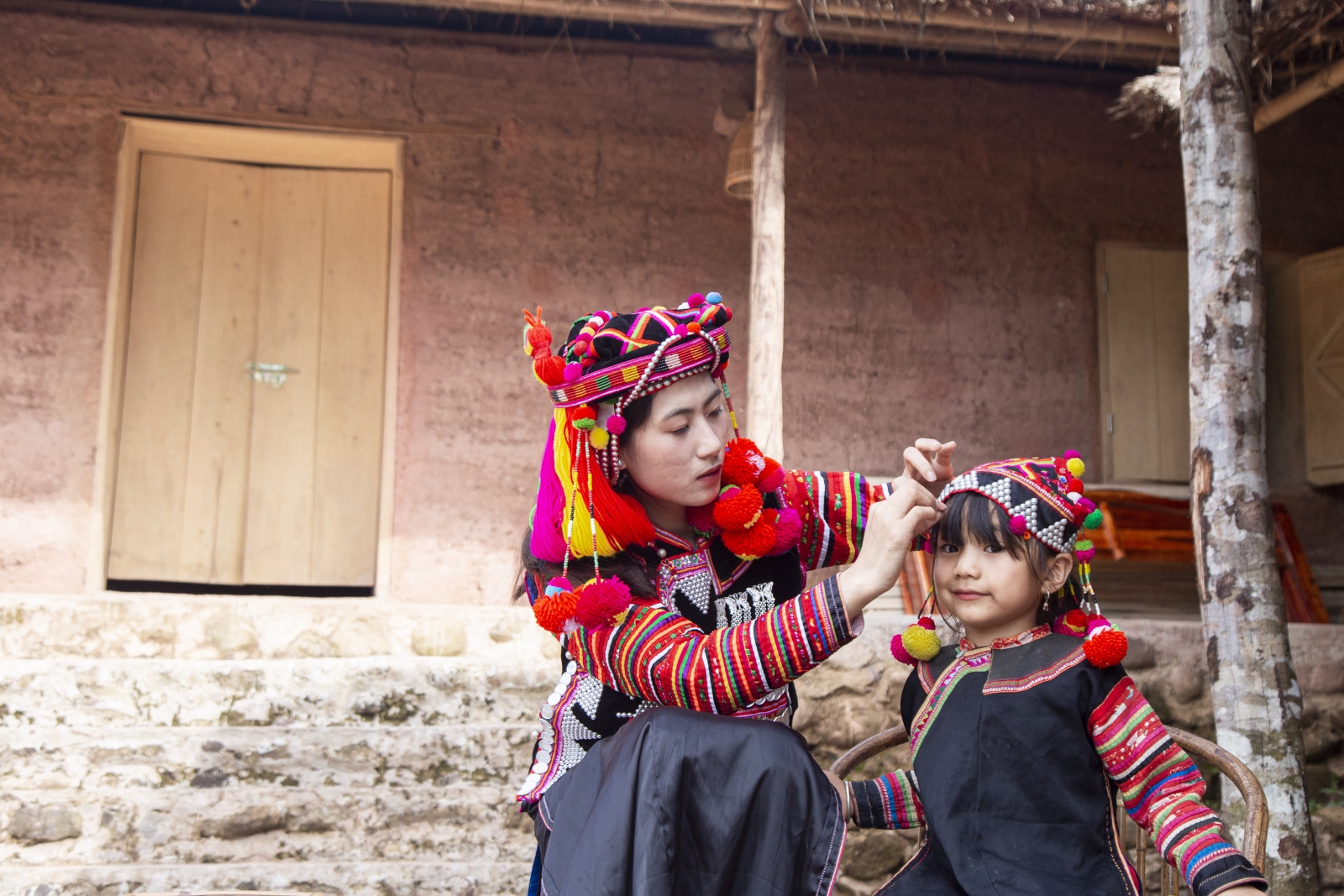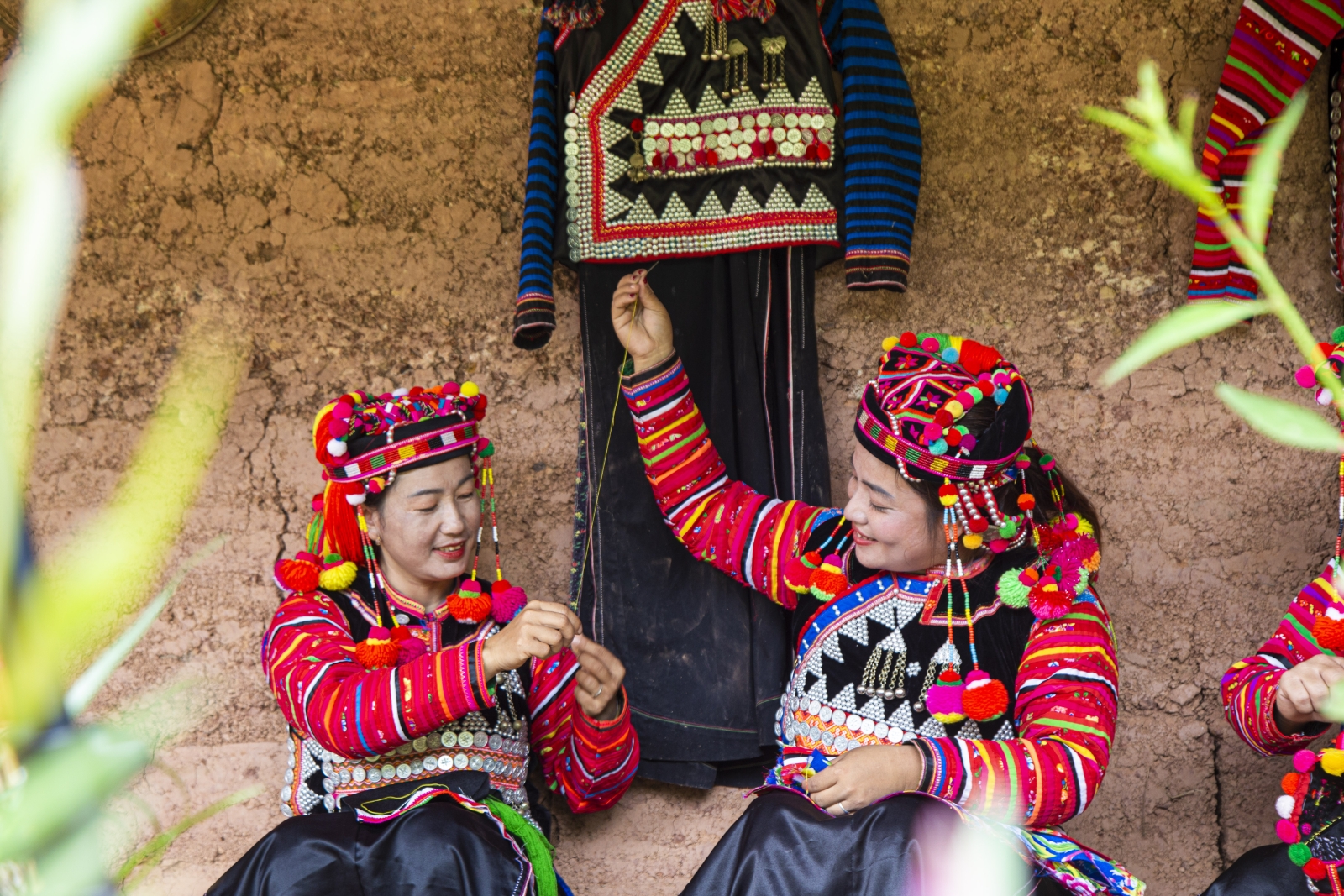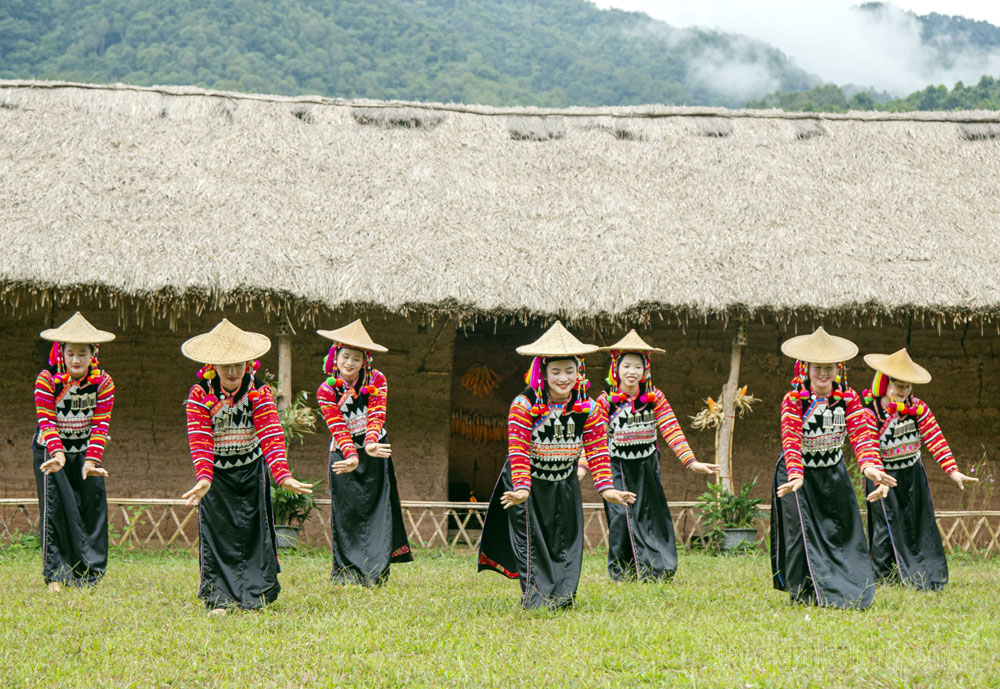As one of the 19 ethnic groups residing in the northern mountainous province of Điện Biên, the Hà Nhì people in Sín Thầu predominantly belong to the Hà Nhì Lạ Mí subgroup. Over time, despite changes, they still managed to uphold characteristic cultural traditions such as language, festivals, and social customs. Central to these customs is the distinctive red hue of their traditional garments, a key element in all ceremonies and daily practices.

The traditional attire of the Hà Nhì is known for its bright and striking colours.
According to Pờ Mì Sư from A Pa Chải Village, Sín Thầu Commune, every Hà Nhì girl learns the art of making traditional clothing from her elders. Intricate patterns and vibrant colours are carefully handcrafted, symbolising a cherished heritage passed down through generations. For the Hà Nhì people, traditional clothing is an indispensable part of festivities and celebrations.
The preference for warm tones like red and yellow in their garments stems from the chilly, cloud-covered highland environment they inhabit. These bright colours are meant to partly ‘dispel’ the cold here. While the overall design of Hà Nhì women’s attire remains consistent, subtle differences can be observed: younger women's clothing tends to be more vibrant, reflecting youthful vitality, while middle-aged and older women’s attire adopts darker, more subdued tones, symbolising maturity and grace.
A typical Hà Nhì traditional outfit includes a headdress, long tunic, short jacket, and trousers. The headdress comprises elements such as a circular hair wrap adorned with coloured threads, a square cloth with layered multicoloured fabrics, and edges decorated with beads and multicoloured pom-poms. The long tunic features front and side slits, button closures, and sleeves trimmed with warm-toned patterns. The short jacket, worn as an outer layer, is embellished with silver buttons and floral or mountain motifs, standing out against the black fabric with elegance and harmony.

The traditional Hà Nhì outfit includes a headdress, long tunic, short jacket, and trousers with many types of patterns.
According to Khoàng Phu Pứ from Sín Thầu, Hà Nhì women are skilled in sewing their family’s traditional attire. Each piece of clothing is crafted with painstaking effort and artistry. Completing a traditional Hà Nhì outfit can take three to four months. Previously, these garments were made solely for personal use, but with evolving societal demands, they have become valuable commodities. Today, a Hà Nhì outfit can cost around VNĐ6-8 million (US$236-314), which not only boost local people’s incomes but also helps promote the preservation of Hà Nhì people’s cultural heritage.

Hà Nhì women weaving patterns on their clothes.
The Hà Nhì people celebrate numerous festivals, including the Village Worship Festival (Gạ Ma Thú), the Rainy Season Festival (Dế Khù Chà), the New Rice Festival (Chế Sự Chà), and their Lunar New Year festival (Khù Sự Chà). During these events, community members exchange greetings and well-wishes, while young women, dressed in their finest traditional attire, stand out like vivid red blossoms in the country’s western end. In the cultural space of the village, traditions and a strong sense of community are preserved. This is one of the key reasons the traditional culture of the Hà Nhì people continues to be safeguarded and developed.
Pờ Sơn Mé, a member of the Tả Kố Khừ Village arts troupe, shares that in addition to the ceremonies, cultural performances are an integral part of Hà Nhì celebrations. Their performances include drum dances (hừ từ mí xá cự), agricultural dances (ú chà khộ tố mí xà cự), and hat dances (lù hu mí xá cự), reflecting the community’s labour-centric lifestyle. These performances not only provide entertainment for the villagers, but also foster love and understanding of Hà Nhì culture among younger generations.

Hà Nhì’s cultural performances are closely tied to their own daily lives and labour.
As modernity advances, the Hà Nhì villages in Sín Thầu are experiencing greater prosperity, but the community here continues to preserve and enrich its traditional culture, contributing to the vibrant mosaic of Điện Biên’s ethnic diversity.




.jpg)
.jpg)
.jpg)

.jpg)
.jpg)


.jpg)
.jpg)
.jpg)

.jpg)

.jpg)
.jpg)
.jpg)
You have 500/500 characters left
Please enter 5 or more characters!!!